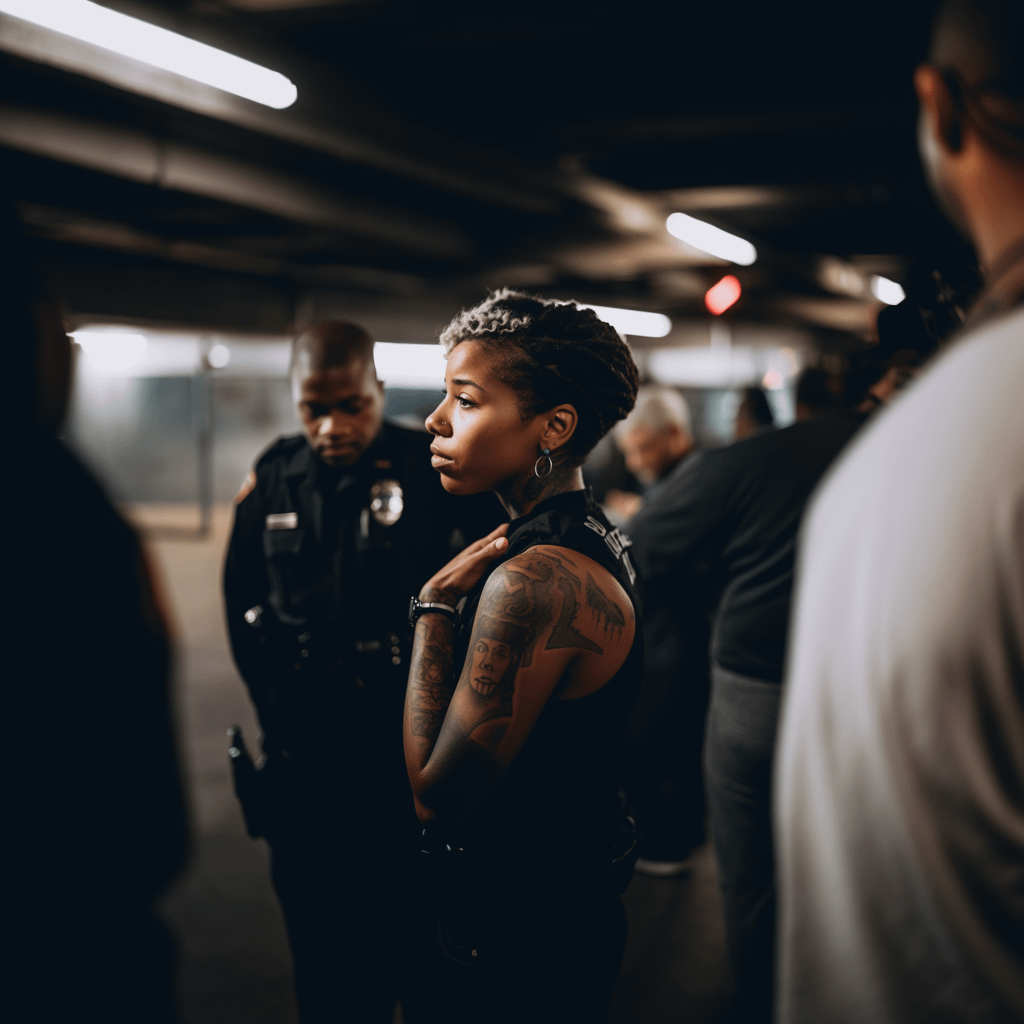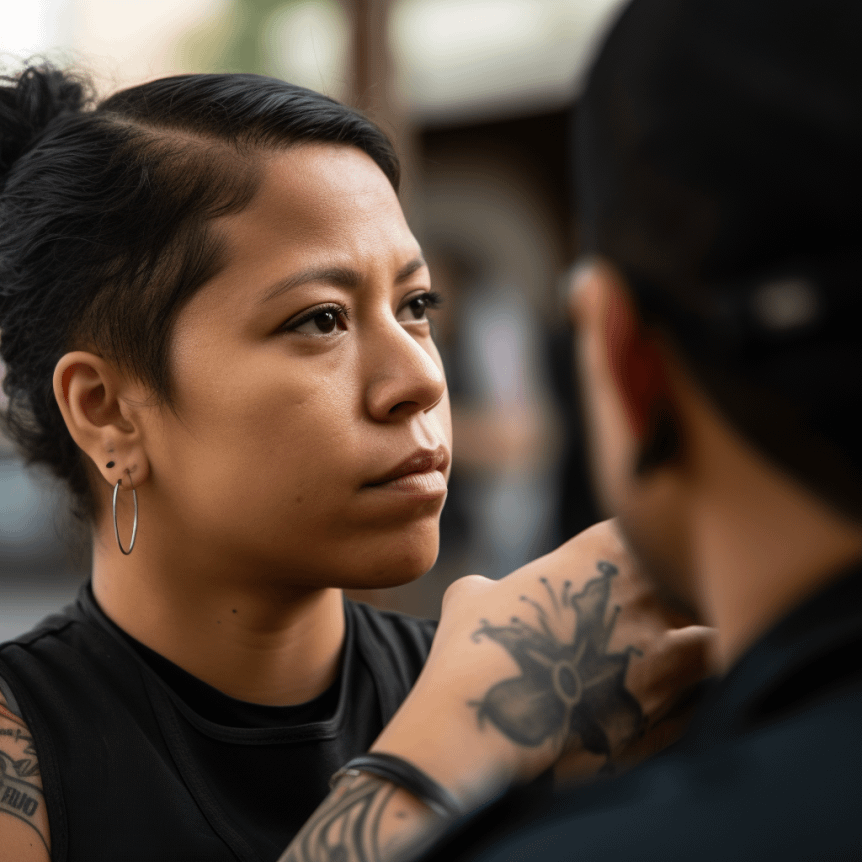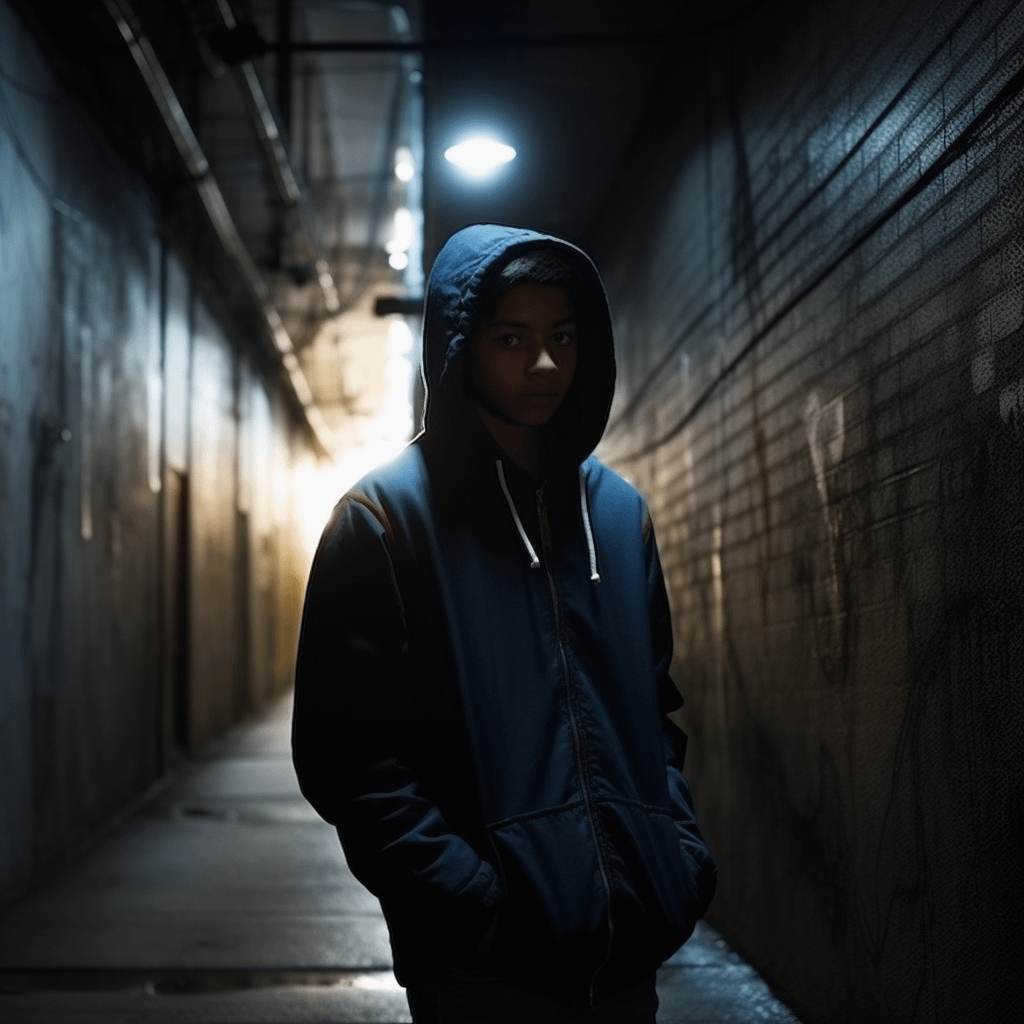Please leave your contact information and we will contact you as soon as possible.
Sexual Violence Against Racial and Ethnic Minorities
Sexual violence is a pervasive issue in the U.S. and throughout the world. However, the impact of this crime is often uneven, with individuals from racial and ethnic minorities experiencing disproportionately higher rates of sexual violence.
This type of violence often intertwines with racism, discrimination, and various forms of oppression, resulting in marginalized groups facing heightened vulnerability.
Despite the statistics, conversations surrounding sexual violence tend to overlook such communities and minimize or dismiss their experiences. As a result, survivors of sexual violence from minority backgrounds often struggle to access help and seek justice.
A sexual assault lawyer can help protect the rights of sexual violence survivors and pursue justice on their behalf. At Edwards Henderson, our attorneys are passionate about helping survivors of sexual violence from all walks of life. We help people obtain justice against their abusers and recover the compensation that can help them secure the resources to move forward, such as mental healthcare services.
Key Takeaways
- Studies show that racial and ethnic minorities experience higher rates of sexual violence including rape and sexual assault, with African-American and Native-American most at risk
- Survivors of sexual violence have the right to pursue justice and compensation through a civil sexual assault lawsuit.
- A qualified sexual assault lawyer provides legal counsel and fights for justice on survivor’s behalf
- Most sex assault attorneys work on a contingency basis, meaning you pay nothing up front and only owe if you win.
What is Sexual Violence?
Sexual violence is an umbrella term that covers unwanted sexual activity performed without mutual consent, such as rape, sexual assault, sexual abuse, sexual harassment, and other unwanted sexual advances.
It occurs when a person exerts their power and control over another through unwanted sexual actions. Sometimes, other forms of violence and crimes may accompany sexual crimes, such as stalking and relationship violence.
While sexual violence affects people regardless of their age, gender, race, or ethnicity, certain groups may face higher rates than others.
Why Does Sexual Violence Disproportionately Affect Some Groups?
According to the National Institute of Health, racial and ethnic minorities, particularly women of color, are disproportionately affected by sexual violence.
This is in part due to the systematic injustice based on racial and gender-based stereotypes. A wide range of stereotypes exist, including that some groups are inherently promiscuous or inherently subservient, amongst many others.
Stereotypes not only result in higher rates of sexual violence against certain groups but also hinder survivors from coming forward with their stories.
Here are some of the possible reasons why certain groups experience sexual violence at higher rates than others:
Systemic injustice
Racial and ethnic minorities are more likely to experience poverty, housing instability, and lack of access to healthcare. These systemic issues make individuals more susceptible to sexual violence and limit their access to legal and other resources.
Barriers to safe housing, quality education, and employment opportunities
Limited access to safe and affordable housing, quality education, and stable employment may impede survivors’ ability to rebuild their lives after sexual violence.

Hyper-sexualized depictions of women of color
Throughout our history, hyper-sexualized depictions of women of color have misrepresented them as sexual objects rather than human beings. The media still often portrays women of color as hyper-sexualized and exotic or perpetrates the “Jezebel” stereotype of women of certain races. This contributes to objectification, thus increasing the risk of sexual harassment and assault.
Some cultures may stigmatize sexual violence and view survivors as responsible for the assault. This discourages them from seeking help, barring them from much-needed support from their families and communities.
Certain marginalized communities may fear disclosure of sexual assault as it may elicit social reactions, like disbelief, victim-blaming, and ostracizing.
Cultural differences in understanding sexual violence
Cultural differences in beliefs about gender roles, sexuality, and appropriate behaviors affect our understanding and response to sexual violence in unfamiliar communities.
These discrepancies create challenges for reporting and addressing sexual violence, as well as receiving culturally competent support and services.
Racial health inequities
Structural racism within the healthcare system inhibits healthcare access for sexual assault survivors of color. There may be a general mistrust toward healthcare providers because of past experiences of discrimination or a communal history of poor treatment that compound the issue.
Concerns and distrust of law enforcement
Some survivors may fear seeking legal help or engaging with law enforcement officials because of concerns about retaliation, lack of trust, or potential legal barriers. For example, undocumented immigrants may fear deportation if they report the crime to the police or seek legal counsel.
Lack of adequate resources
A person of color may face more difficulties acquiring support services, including legal support. This is why our sexual assault attorneys provide free and confidential legal consultations and do not charge any fees until they secure a winning verdict or settlement for their clients.
Unique issues faced by child sex abuse survivors
Child sexual abuse survivors may face culture-specific issues, such as pressure on South Asian-origin women to maintain “purity” and hide sexual assault for the fear of being rejected for marriage.
Similarly, some male survivors of color may not report sexual violence if being “gay” is considered a “sin” in their culture, carrying on the existing stigma and discrimination.

Sexual Assault Against Racial and Ethnic Minorities: Statistics
Statistics show that sexual violence against racial and ethnic minorities is a common issue in the U.S.:
- Studies show the likelihood of experiencing interpersonal violence, including sexual violence, increases for Black, Brown, and Native people because of various systemic factors, like poverty, racism, and colonialism.
- The National Intimate Partner and Sexual Violence Survey (NISVS) reports that more than 1 in 4 non-Hispanic Black and non-Hispanic White, 1 in 5 Hispanic, and 1 in 6 non-Hispanic Asian or Pacific Islander women in the U.S. experienced rape in their lifetime. More than 2 in 5 non-Hispanic American Indian/Alaska Native and non-Hispanic multiracial women were raped in their lifetime.
- The NISVS also reported that 1 in 5 non-Hispanic Black and non-Hispanic Asian or Pacific Islander, 1 in 4 non-Hispanic White and Hispanic, and 1 in 3 non-Hispanic American Indian/Alaska Native and non-Hispanic multiracial men reported unwanted sexual contact in their lifetime.
- Studies focused on lifetime experiences of sexual violence found approximately 1 in 5 Black women experienced rape, with the highest prevalence among low-income, HIV-positive, incarcerated, or bisexual women.
- According to data from the National Institute of Justice, Native women are also disproportionately affected by sexual violence, with over half of Native women surveyed (56.1%) reporting sexual violence in their lifetimes.
Sexual violence statistics relay that 1 in 3 Native American women will be raped or sexually assaulted in their lifetime, according to the National Institute of Justice. Additionally, they are 2.5 to 3.5 times more likely to experience sexual assault compared to other races.
Sexual Violence and Racism
Sexual violence and racism are deeply intertwined. Racial and ethnic minorities are at a higher risk of experiencing sexual violence due to a variety of factors, including poverty, lack of resources, and institutionalized racism.
Marginalized groups are often subject to negative stereotypes and dehumanization, which enforce a culture of violence and objectification. We must address both racism and sexual violence simultaneously to create a safer, more equitable society.
Rape and Sexual Violence Against Black Women
The impact of sexual violence on Black women goes beyond just physical harm. Survivors often suffer from long-term mental and emotional trauma. They may face ongoing difficulties with intimacy and relationships.
Black women disproportionately experience sexual violence due to the intersection of various forms of oppression, including racism, sexism, economic and reproductive oppression, as well as community-level internalized stigma and mistrust.
For every Black woman who reports rape, at least 15 do not report for reasons including a fear of retaliation or retribution, a mistrust of the legal system, and a stigma around speaking out about sexual violence.
Additionally, Black women are often stereotyped and viewed as sexually promiscuous, making it harder to be taken seriously when they do report an assault.
Among survivors of sexual assault, Black survivors were abused by an intimate partner more often than White survivors.
Black survivors assaulted by an intimate partner were less likely to seek mental health care than White intimate partner violence (IPV) survivors, likely because of systemic barriers to mental health care in the Black community, as well as a lack of trust in mental health professionals.
Impact of Sexual Violence on Ethnic Minorities
Sex-related violence is a traumatizing experience that severely impacts survivors’ long-term well-being. For ethnic minorities, trauma is compounded by the reality of living under interlocking forms of oppression such as sexism, racism, and classism.
Minorities face a variety of barriers, including discriminatory policies, financial difficulties, language barriers, and social stigmas associated with mental health.
As a result, the impacts of sexual violence on ethnic minorities are often far-reaching, including:
- Physical health problems: Sexual violence may result in physical health problems such as sexually transmitted infections, pregnancy, and physical injuries. Ethnic minorities are more likely to experience physical health problems due to factors such as lack of access to healthcare, poverty, and racism.
- Cultural influences: Ethnic minorities may face additional cultural barriers in seeking justice after experiencing sexual violence, including victim-blaming, where individuals are blamed for their assault or discouraged from speaking out.
- Real and perceived barriers in reporting sexual assault: Survivors may face real and perceived barriers when reporting sexual assault, including language barriers, fear of retaliation, distrust of law enforcement, or fear of being ostracized by their community.
- Mental health issues: Ethnic minorities experience higher levels of post-traumatic stress disorder (PTSD) and anxiety after experiencing sexual violence and are less likely to seek treatment due to stigma or a lack of resources.
- Failure on the part of agencies to practice cultural competence: Agencies tasked with responding to sexual violence may have inadequate training or resources for the unique cultural experiences and perspectives of ethnic minority survivors.
- Risky behaviors following sexual assault: Ethnic minorities who experience sexual violence may be more likely to engage in risky behaviors, such as substance abuse or unprotected sex. These behaviors may further negatively impact survivors’ long-term health.

Resources for Sexual Assault Survivors
If you or someone you know experienced sexual violence, consider seeking help and support. You are not alone.
Below is only a sample of the organizations and resources that exist to assist you in your recovery:
- Restore Forward: This organization offers trauma-focused therapy for African American girls and women who are survivors of sexual assault.
- Rights 4 Girls: Focused on supporting girls and young women of color, Rights 4 Girls offers a range of resources, including policy advocacy, research, and direct services like crisis counseling and legal representation.
- APIGBV: The Asian Pacific Institute on Gender-Based Violence (APIGBV) offers a range of resources and services for survivors of domestic violence and sexual assault within Asian and Pacific Islander communities. Their work also includes policy advocacy and training for service providers.
- Esperanza United:Esperanza United is a national organization that provides support and advocacy for Latino survivors of domestic violence and sexual assault. Their services include a 24/7 hotline, legal advocacy, and more.
- RAINN (Rape, Abuse & Incest National Network): This organization provides support and resources for survivors of sexual assault and their loved ones. They offer a 24/7 hotline, online chat, and local resources.
- The Trevor Project: The Trevor Project provides support and resources for LGBTQ+ youth, including a crisis hotline, online chat, and local resources.
How Can A Sexual Assault Attorney Help Me?
Sexual assault is a traumatic and life-altering event that may leave survivors feeling powerless, vulnerable, and hopeless. However, with the help of a skilled sexual assault attorney, survivors can take legal action against their perpetrators and seek compensation for their losses.
Sexual abuse attorneys provide survivors with more than just legal assistance. They help survivors navigate the emotional aftermath of the assault and assist them in achieving closure and justice.
Sexual assault lawyers seek compensation from the perpetrators, including recovering costs for pain and suffering, medical bills, lost wages, therapy sessions, and other expenses resulting from the sexual assault.
A qualified lawyer also holds third parties responsible for the crime accountable, such as businesses or institutions that may have enabled or ignored the perpetrator’s behavior. Overall, sex assault attorneys help protect your rights and advocate for you throughout the entire legal process.

Racial and Ethnic Minorities Sexual Violence: FAQs
1. What is sexual consent?
Sexual consent is when someone agrees to participate in sexual activity with another person. Consent must be given freely and without coercion, and can be withdrawn at any time.
Without consent, sexual activity becomes sexual assault. Sexual assault includes any sexual activity performed without consent.
2. Why is there a “culture of silence” around sexual assault for minority groups?
Unfortunately, sexual assault goes unreported in minority communities for many reasons. First, rape culture and victim-blaming perpetuate the notion that the survivor is somehow at fault for the attack, causing fear of retribution or retaliation.
Second, the pressure to conform to the stereotype of being a “strong person” may deter individuals from reporting their assault.
Furthermore, many ethnic and racial minority groups have a history of negative experiences with law enforcement, family, or community regarding reporting crimes.
3. Can I file a civil sexual assault lawsuit against an organization?
Yes, filing a civil sex abuse lawsuit against an organization may be possible. Organizations that commonly face such lawsuits include schools, universities, churches and other religious institutions, and healthcare facilities.
Organizations like these must ensure a safe environment for their employees and patrons, and if they fail, they may be accountable for any harm caused by sexual assault.
4. What is the statute of limitations on sexual assault?
Sexual assault statutes of limitations vary from state to state. A sexual assault lawyer can help you determine if you have a valid claim and advise you on the relevant time limits for your state.
5. I am an undocumented immigrant. Can I hire a sexual assault attorney?
Yes, as an undocumented immigrant, you can and should access legal services for sexual assault. Attorneys must keep client information confidential, and immigration status does not prevent you from obtaining legal help.
Do not let your immigration status prevent you from seeking justice and support after experiencing sexual violence.
6. Can I afford a sexual assault lawyer?
The idea of hiring a lawyer may seem daunting, especially regarding the cost. However, most sexual assault attorneys, like those at Edwards Henderson, work on a contingency fee basis. That they only get paid if you win your case. This gives survivors the right to legal representation without having to worry about upfront costs.
Speak to a Compassionate Sexual Assault Attorney
If you or a loved one are a survivor of sexual violence, speak to a compassionate and experienced sexual assault attorney.
The attorneys at Edwards Henderson have secured hundreds of millions of dollars in compensation for survivors and continue to fight for them. We understand the sensitivity of these cases. We can guide you through the legal process with compassion, privacy, and empathy.
Contact us today for a free legal consultation.
Article Sources
-
Fast Facts: Preventing Sexual Violence | CDC
https://tinyurl.com/2x4bmav5 -
Black Women & Sexual Violence | National Organization for Women
https://now.org/wp-content/uploads/2018/02/Black-Women-and-Sexual-Violence-6.pdf -
The National Intimate Partner and Sexual Violence Survey | CDC
https://tinyurl.com/48bx47n5 -
Racism & Sexual Violence | PCAR
https://pcar.org/sites/default/files/resource-pdfs/tab_2017_racismsexual_violence_connections-508d.pdf -
Violence Against American Indian and Alaska Native Women and Men | National Institute of Justice
https://nij.ojp.gov/topics/articles/violence-against-american-indian-and-alaska-native-women-and-men -
Black Women, Sexual Assault, and Criminalization | National Black Women's Justice Institute
https://www.nbwji.org/post/black-women-sexual-assault-criminalization -
Restore Forward
https://restoreny.org/ -
Rights4Girls
https://rights4girls.org/ -
Asian Pacific Institute on Gender-Based Violence
https://www.api-gbv.org/ -
Esperanza United
https://esperanzaunited.org/en/ -
RAINN
https://www.rainn.org/ -
The Trevor Project
https://www.thetrevorproject.org/



